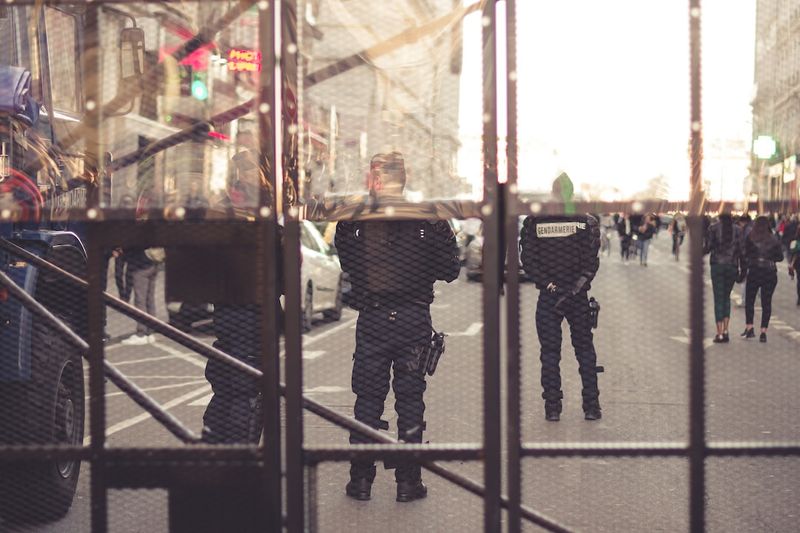Table of Contents
France Urged to Reform Police Stop Practices Amidst Unrest and Racial Profiling Concerns
The Issue at Hand
The recent killing of a French 17-year-old boy of North African descent during a traffic stop has sparked serious unrest across France and reignited the discussion on police violence and discrimination in the country. Ethnic profiling by the police is a well-documented and widespread problem, and in response to this issue, six prominent groups have come together to urge the French government to reform the system for police stops in order to eliminate racial profiling and other discriminatory practices.
The Statement from Human Rights Watch and Other Groups
The joint statement from Human Rights Watch, along with Amnesty International France, MCDS, Open Society Justice Initiative, Pazapas Belleville, and REAJI, criticizes the French government for allowing these discriminatory practices to persist and highlights the urgent need for reform. The statement underscores that police stops, which include ethnic profiling, are not only illegal under French and international human rights law, but they are also violent, humiliating, and degrading, making those targeted feel like second-class citizens. It also points out that despite the acknowledgment of racial profiling by the French president in 2020, no structural response has been taken by the authorities.
Raising Awareness
The statement draws attention to the fact that numerous national and international studies have documented these illegal practices and that the French state has been condemned by domestic courts for the widespread practice of ethnic profiling during police stops. The associations involved in the statement have taken legal action, filing a class action suit with the Council of State, France’s highest administrative court, to put an end to racial profiling. The case is currently pending.
Proposed Reforms
The joint statement outlines several key reforms that the associations are calling for to address this issue:
- Reforming identity checks: The statement calls for the abolition of administrative identity checks that are conducted without any individualized suspicion and solely based on physical characteristics linked to origin. Instead, the use of judiciary checks, which require objective, individualized suspicion, should be strengthened.
- Specific measures for identity checks targeting children: The associations urge the French authorities to adopt specific measures and instructions for identity checks on children.
- Implementing a proof system for police stops: The statement emphasizes the importance of providing anyone subjected to a police stop with proof that they were stopped. It also calls for officials to evaluate the legitimacy of the stop.
- Creating an independent complaints mechanism: The associations propose the establishment of an independent and effective mechanism for individuals to file complaints against police misconduct.
- Modifying institutional objectives, guidelines, and police training: The statement highlights the need to modify institutional objectives, guidelines, and police training, particularly with regard to interactions with the public.
The Urgency to Address this Issue
An open letter signed by 84 associations, collectives, and trade unions emphasizes the urgent need to address racial profiling and the discriminatory controls faced by young people in France. These discriminatory practices not only instill fear in communities but also perpetuate a deep-rooted public policy of systemic racism within the police forces. The associations stress the importance of putting an end to this scourge and ensuring that individuals are no longer subjected to violence and discrimination simply because of their ethnicity or background.
Philosophical Discussion and Editorial Opinion
The issue of racial profiling and discrimination in law enforcement is a deeply troubling and complex problem that demands urgent action and reform. It raises significant ethical and philosophical questions about equality, justice, and human rights. Racial profiling undermines the principles of equal treatment and fairness, eroding trust between the police and the communities they serve. It perpetuates stereotypes and prejudices, leading to deeply unequal outcomes in law enforcement and perpetuating systemic racism within society.
Reforming police stop practices is not just a matter of addressing individual incidents of misconduct; it requires a comprehensive overhaul of police training, culture, and accountability mechanisms. It necessitates a paradigm shift towards community policing, where law enforcement agencies work in partnership with the communities they serve, fostering trust and mutual respect.
Furthermore, addressing racial profiling requires broader societal change. It is crucial to recognize that racial profiling is not an isolated issue, but rather part of a larger system of discrimination and marginalization. Tackling racial profiling requires addressing systemic inequalities and promoting social justice in all areas of society, from education to employment to healthcare.
The French government should take this opportunity to engage in a serious dialogue with these associations and work towards implementing the proposed reforms. It is crucial to involve community organizations, activists, and affected communities in the process to ensure that the reforms are effective and meet the needs of those directly impacted. Transparency, accountability, and an unwavering commitment to human rights are essential pillars of any successful reform process.
Conclusion
The recent unrest and the ongoing fight against racial profiling and discrimination in France highlight the urgent need for comprehensive police reform. The joint statement from Human Rights Watch and other groups underscores the gravity of the issue and the importance of taking immediate action. It is essential for the French government to acknowledge the deep-rooted nature of this problem, pursue meaningful reforms, and work towards building a more inclusive and just society.

<< photo by ev >>
The image is for illustrative purposes only and does not depict the actual situation.